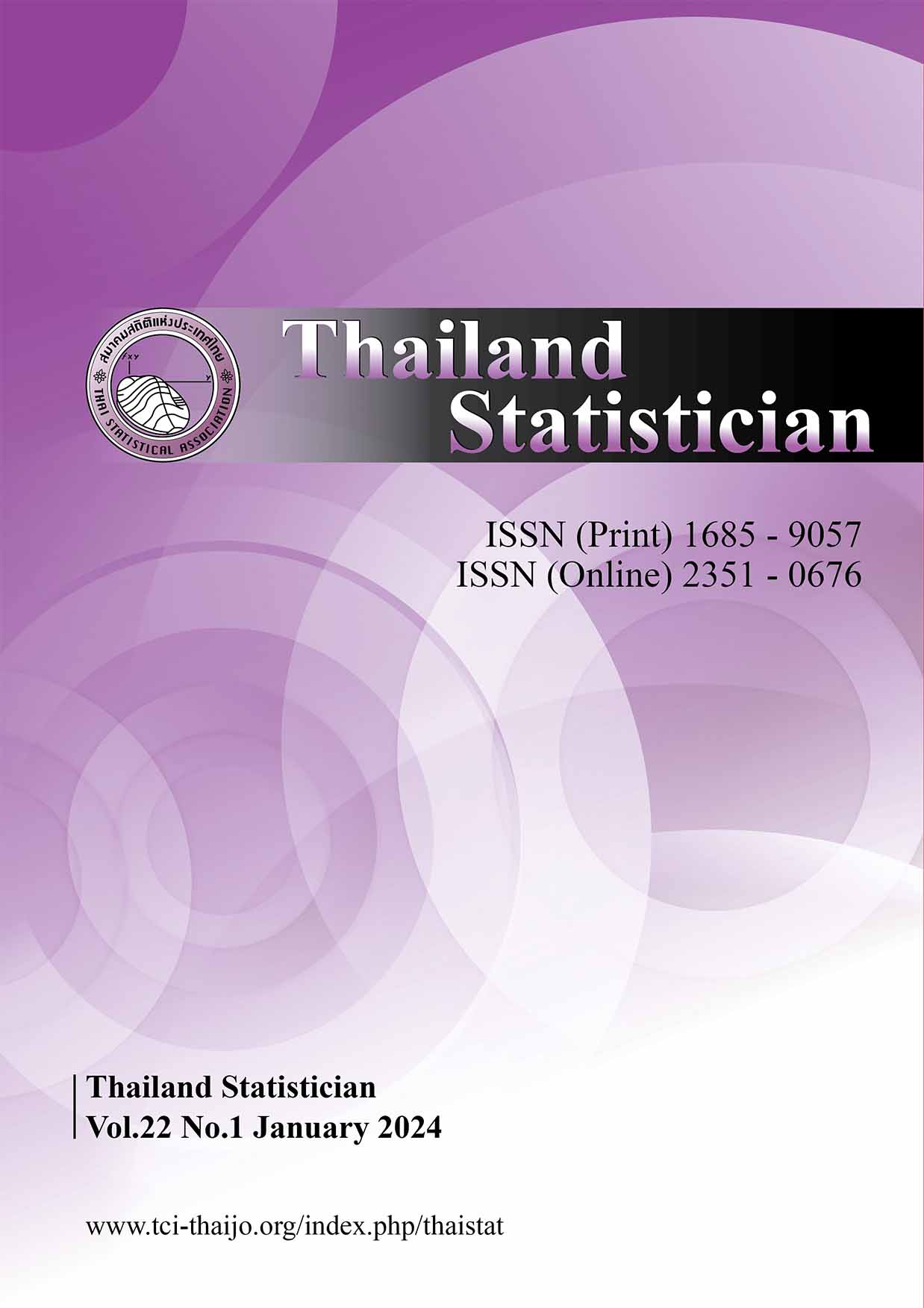Proportion Based Dual Unbiased Exponential Type Estimators of Population Mean
Keywords:
Auxiliary attribute, dual estimator, unbiased estimator, bias, mean square errorAbstract
Prior to the concept of auxiliary information, the estimator used for estimating the finite population mean was the sample mean estimator. By making use of auxiliary information, some new estimators of population mean were proposed from time to time to get more precise estimates. The importance of these estimators lies in that they estimate the population mean of the study variable
precisely by making use of the information of some other variable called the auxiliary variable whose information is readily available. Besides ratio, product, regression, and difference estimators, the exponential estimators were also proposed which may be employed even when there is a low degree of correlation between the study and auxiliary variable. This paper proposes dual unbiased exponential-type estimators in simple random sampling when the auxiliary information is qualitative in nature. The theoretical expressions of bias and mean square error (MSE) have been evaluated. A comparative study of MSE expressions of the estimators shows that the proposed estimators produce more efficient results than the existing sample mean estimator, the estimators of Naik and Gupta (1996), exponential estimators of Singh et al. (2007), and the family of exponential estimators proposed by
Zaman and Kadilar (2019). To support the claim of gain in efficiency, a numerical study is also carried out using the data of two populations.
References
Abd-Elfattah AM, El-Sherpieny EA, Mohamed SM, Abdou OF. Improvement in estimating the population mean in simple random sampling using information on auxiliary attribute. J Appl Math
Comput. 2010; 215: 4198-4202.
Cochran WG. The estimation of the yields of the cereal experiments by sampling for the ratio of grain
to total produce. J Agri Sci. 1940; 30: 262-275.
Hussain S, Sharma M, Bhat MIJ. Optimum exponential ratio type estimators for estimating the population mean. J Stat Appl Prob Lett. 2021; 8(2): 73-82.
Hafeez W, Shabbir J, Shah MT, Ahmed S. Some median type estimators to estimate the finite population mean. Asian J Probab Stat. 2020; 7(4): 48-58.
Hafeez W, Shabbir J. Estimation of the finite population mean, using median based estimators in
stratified random sampling. J Stat Appl Probab. 2015; 4(3): 367-374.
Khoshnevisan M, Singh R, Chauhan P, Sawan N, Smarandache F. A general family of estimators for estimating population mean using known value of some population parameter(s). Far East J Theor Stat. 2007; 22: 181-191.
Mukhopadhyaya, P. Theory and methods of survey sampling. New Delhi: PHI Learning Pvt Ltd India; 2000.
Naik VD, Gupta PC. A note on estimation of mean with known population of an auxiliary character. J Ind Soc Agri Stat. 1996; 48(2): 151-158.
Robson DS. Applications of multivariate polykays to the theory of unbiased ratio type estimation. J Amer Stat Assoc. 1957; 52: 511-522.
Reddy VN. (1974): On a transformed ratio method of estimation. Sankhya C. 1974; 36:59-70.
Sisodia BVS, Dwivedi VK. A modified ratio estimator using coefficient of variation of auxiliary variable. J Ind Soc Agri Stat. 1981; 33(2): 13-18.
Singh H P, Tailor R. Use of known correlation coefficient in estimating the finite population mean. Stat Transit. 2003; 6(4): 555-560.
Singh R, Chauhan P, Sawan N, Smarandache F. Ratio-product type exponential estimator for estimating finite population mean using information on auxiliary attribute. Renaissance High Press, USA. 2007; 18-32.
Singh HP, Upadhyaya LN, Tailor R. Ratio-cum-product type exponential estimator. Statistica. 2009; 69(4): 299-310.
Sharma B, Tailor R. A new ratio-cum-dual to ratio estimator of finite population mean in simple random sampling. Glob J Sci Front Res. 2010; 10(1): 27-31.
Sukhatme PV, Sukhatme BV. Sampling Theory of Surveys with Applications. USA: Lowa State University Press; 1970.
Singh R, Gupta, SB, Malik, S. Almost unbiased estimator using known value of population parameter (s) in sample surveys. arXiv preprint arXiv. 2014; 1405.4182.
Singh HP, Kumar S. A general family of estimators of finite population ratio, product and mean using two phase sampling scheme in the presence of non-response. J Stat Theory Pract. 2008; 2(4):677-692.
Tailor R, Tailor R, Parmar R, Kumar M. Dual to ratio-cum-product estimator using known parameters of auxiliary variables. J Reliab Stat Stud. 2012; 5 (1): 65-71.
Yadav SK, Kadilar C. Improved Class of Ratio and Product Estimators. J Appl Math Comput. 2013; 219 (22): 10726-10731.
Yadav R, Upadhyaya LN, Singh HP, Chatterjee S. Almost unbiased ratio and product type exponential estimators. Stat Transit new series. 2012; 13(3): 537-550.
Zaman T, Kadilar C. Novel family of exponential estimators using information of auxiliary attribute. J Stat Manag Syst. 2019; 22(8): 1499-1509.
Downloads
Published
How to Cite
Issue
Section
License

This work is licensed under a Creative Commons Attribution-NonCommercial-NoDerivatives 4.0 International License.




